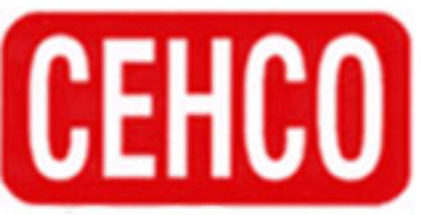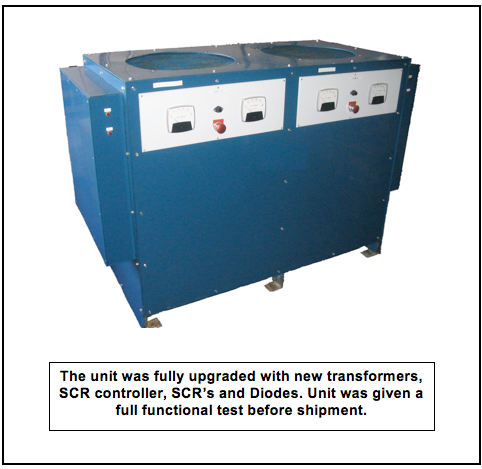Electrochlorination power supplies are specialized electrical systems used to generate chlorine gas through the process of electrochlorination. This technology is commonly used in water treatment and disinfection applications, particularly in the production of chlorine for the purpose of sterilizing water, swimming pools, and industrial processes. Here are some key points about electrochlorination power supplies:
-
Electrochlorination Process: Electrochlorination is a chemical process that uses an electrical current to convert chloride ions (typically derived from sodium chloride or brine) into chlorine gas and sodium hydroxide (caustic soda) within an electrolytic cell. Chlorine gas is a potent disinfectant and is commonly used to treat water in various applications.
-
Components: Electrochlorination power supplies typically consist of the following components:
- Electrolytic cells: These cells contain electrodes and the brine solution through which the electrical current flows. Chlorine gas is produced at the anode, while sodium hydroxide is produced at the cathode.
- Power supply unit: This unit provides the electrical current required for the electrochlorination process. It can be a rectifier that converts alternating current (AC) to direct current (DC) at the appropriate voltage and current levels.
- Control and monitoring system: Electrochlorination systems often include control and monitoring systems to regulate the electrochlorination process, measure chlorine production, and ensure safe and efficient operation.
- Safety features: Given the potentially hazardous nature of chlorine gas, electrochlorination systems may incorporate safety features such as gas detectors, alarms, and emergency shutdown mechanisms.
-
Voltage and Current: Electrochlorination power supplies can vary in voltage and current capacity depending on the size and application of the system. Smaller systems may operate at lower voltages, while larger industrial systems can operate at higher voltages.
-
Efficiency: Efficiency is an important consideration in electrochlorination power supplies. Efficient power conversion and control systems help minimize energy consumption and operating costs.
-
Applications: Electrochlorination power supplies are commonly used in various applications, including:
- Municipal water treatment plants
- Industrial water treatment and cooling systems
- Swimming pool water disinfection
- Seawater and brackish water desalination
- Food and beverage processing
- Disinfection of wastewater and effluent streams
-
Environmental Benefits: Electrochlorination is considered a more environmentally friendly method of chlorine production compared to traditional methods that involve the use of hazardous chemicals like liquid chlorine gas or chlorine gas cylinders. Electrochlorination systems can produce chlorine on-site, reducing the need for transportation and storage of hazardous materials.
-
Maintenance: Regular maintenance and monitoring are essential to ensure the proper functioning of electrochlorination power supplies. This includes cleaning and inspecting electrodes, checking electrical connections, and replacing components as needed.
In summary, electrochlorination power supplies are critical components of electrochlorination systems used for the production of chlorine gas for water disinfection and treatment. These systems play a crucial role in ensuring the safety, efficiency, and effectiveness of water treatment processes in various industrial and municipal applications.

